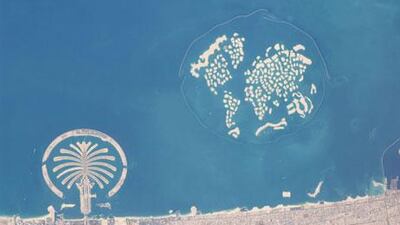Renowned for creating man-made islands for luxury properties, Nakheel is to build 500 artificial reefs off Dubai's coast to help to develop marine life and sustain the emirate's fishing industry.
Location, location, location:
Industry Insights What's hot and what's not in the world of property. Learn More
Construction on the project, which is being built in consultation with Emirates Marine Environmental Group, will begin in the next three months and is expected to last about a year.
"We thought it is important to help increase the marine life," said Ali Rashid Lootah, the chairman of Nakheel. "It's a normal practice that international businesses do some social work and we thought that because most of our development is on the marine side, we thought [such work] should be that side."
The 500 artificial reefs are expected to be built around Nakheel's various developments, such as the Palm Jumeirah, the World and the Palm Jebel Ali, and will be open for public use and fishing.
Currently, no commercial fishing is allowed near any of Nakheel's projects, a situation that has led to the loss of some of Dubai's traditional fishing spots.
Fish were expected to return to the artificial reefs within six months of them being built and about 10 per cent of the total area would be available to fishermen, said Mr Lootah. He added the project was not in response to a report this week by the UN University that Gulf coastal projects were damaging the marine ecosystem.
The report focused specifically on the Gulf region and what environmentalists could learn from the huge infrastructure projects that have been completed in recent years.
"The design and general approach to coastal development currently being applied within the Gulf is expected to introduce and exacerbate environmental risks," said the report.
"The creation of environments where water is impounded and potentially made hotter and saltier is fundamentally a bad idea ecologically," it said. Nakheel, which recently underwent a Dh60 billion (US$16.3bn) restructuring process, said it did not have an estimated cost for its reef project, but Keith Wilson, the marine programme director at Emirates Marine Environmental, said a similar reef project had been built in Hong Kong at a cost of $15 million.
In Fujairah, a project to create a reef by placing 35 large concrete balls into the sea near Le Méridien Al Aqah Hotel cost about Dh100,000.
"This project will not be a big financial burden as most of the materials are with us," said Mr Lootah.
"We thought it was important to help increase marine life now that we have more free time after our restructuring," he added.
The developer's investment in a new project such as the 500 reefs is unlikely to be received with much enthusiasm by some of its customers still waiting for parts of some of its other projects to be completed.
Residents of the Shoreline Apartments on the Palm Jumeirah are protesting at being asked to pay for access to communal facilities, which was previously free of charge.
But Mr Lootah was defiant in response to resident complaints that the move to privatise the beachfronts was in breach of contract.
"People want something that they are not entitled for," said Mr Lootah.
"They should read their contracts … We are abiding and respecting the law."

